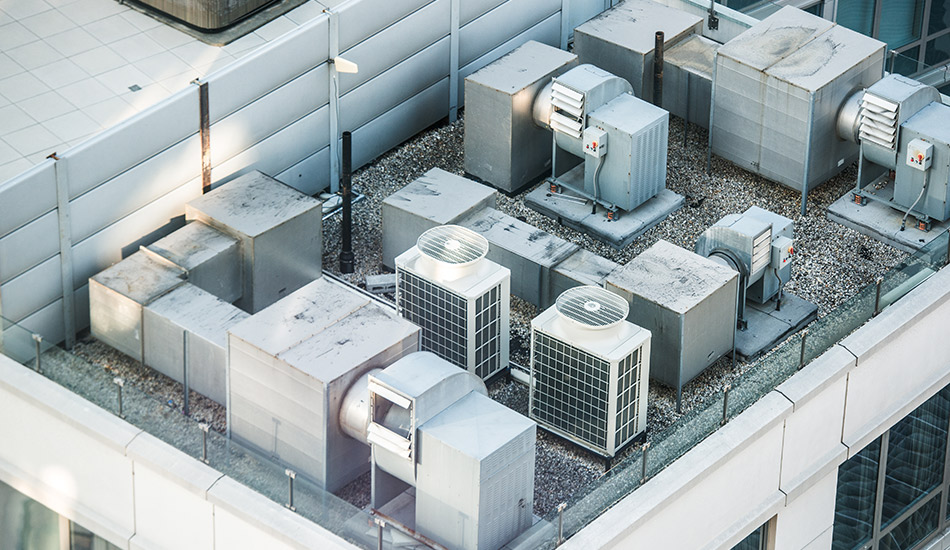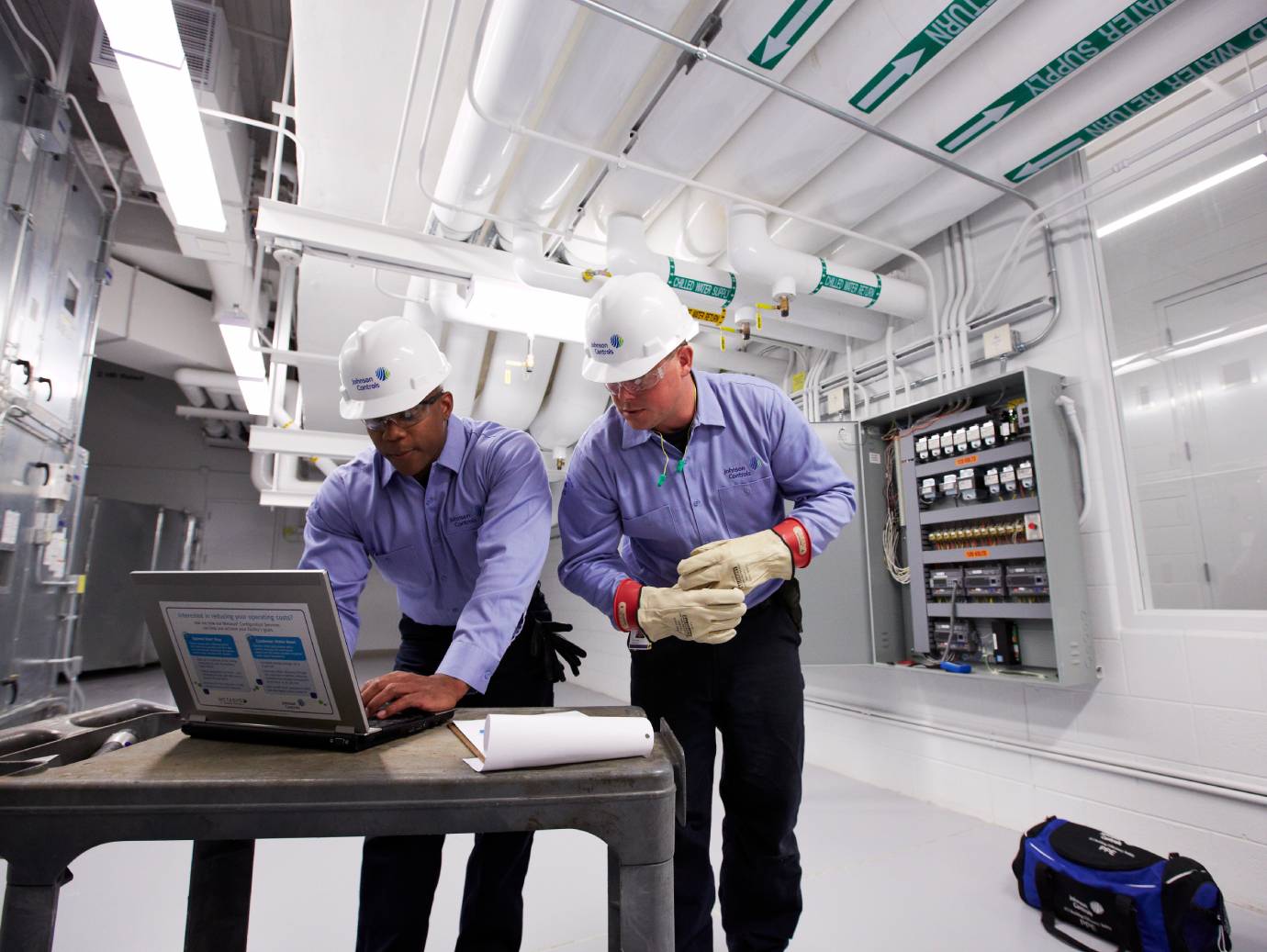Evaluating Options for Your heat pump replacement ooltewah tn
Evaluating Options for Your heat pump replacement ooltewah tn
Blog Article
Choosing In Between a Heatpump and Furnace: Secret Considerations for Your Heating And Cooling Needs
When examining home heating options for a/c needs, the choice in between a heatpump and a furnace can be intricate. Each system provides distinct benefits customized to details climates and energy efficiency objectives. Understanding these differences is essential for making an enlightened choice. Key elements such as installment expenses and environmental effect further make complex the selection process. Which option genuinely aligns with one's convenience and sustainability preferences? The following sections will discover these considerations thoroughly.
Understanding Warmth Pumps: How They Work and Their Advantages
While many homeowners take into consideration different home heating options, understanding how heatpump function and their advantages can greatly affect their choice. Warm pumps run by moving heat as opposed to creating it. In the wintertime, they extract warm from the outdoors air or ground and move it indoors, while in the summer, they reverse this process, cooling down the home by eliminating heat outside. This double capability makes them versatile for year-round climate control.One of the key advantages of warm pumps is their power performance. They utilize substantially less electrical energy contrasted to traditional furnace, possibly causing reduced energy bills (ductless mini splits). In addition, heat pumps have a smaller sized carbon impact, making them an eco pleasant option. They additionally call for less maintenance than traditional systems, adding to long-term price financial savings. In general, understanding the mechanics and advantages of warm pumps can assist house owners make informed choices regarding their home heating and cooling requirements
Exploring Heaters: Kinds, Operation, and Benefits
Furnaces come in various types, consisting of gas, electrical, and oil versions, each with distinctive functional devices. Recognizing these differences is crucial, as they impact efficiency and home heating efficiency. Furthermore, heaters use many benefits, such as constant heat output and integrity in cooler climates.
Sorts of Furnaces
Furnace can differ significantly in layout and procedure, with furnaces being a popular choice among homeowners. There are a number of types of furnaces, each utilizing different gas sources and technologies. Gas furnaces are typical, leveraging natural gas to generate warmth successfully. Electric heating systems, on the other hand, utilize electrical resistance to produce warmth, typically favored for their uncomplicated installment. Oil heaters, while less usual, are effective in locations with minimal gas access (heat pump service). Additionally, condensing heaters make the most of energy effectiveness by capturing and recycling exhaust gases. Each kind runs via a system of warm exchangers and ductwork to distribute cozy air throughout a home. Comprehending the distinctions between these heating system types is important for informed a/c choices
Advantages of Furnaces
For house owners seeking reputable heat during chilly months, the benefits of heaters are significant. Heaters give constant heating, ensuring even temperatures throughout the home. They are especially efficient in extreme chilly, commonly outperforming heatpump in cold conditions. Various types, consisting of gas, electrical, and oil furnaces, use versatility to meet diverse demands and preferences.Furnaces additionally often tend to have reduced first installment expenses contrasted to heatpump, making them an extra obtainable option for lots of. Their durable design adds to a much longer life-span, with numerous devices lasting over 15 years with appropriate maintenance. Additionally, modern heating systems are frequently geared up with innovative innovation for enhanced efficiency, which can lead to reduced power expenses. Overall, furnaces continue to be a reputable choice for reliable home heating.

Energy Effectiveness: Comparing Warmth Pumps and Furnaces
When comparing power efficiency between heatpump and furnaces, the Seasonal Power Effectiveness Proportion (SEER) plays a vital duty in establishing performance. In addition, a functional price analysis discloses the lasting monetary effects of each system. Understanding these elements can assist homeowners in making notified decisions regarding their heating options.
Seasonal Power Efficiency Ratio
Energy performance plays an important function in the decision-making procedure in between heatpump and heaters, particularly when thinking about the Seasonal Power Effectiveness Ratio (SEER) This metric steps the cooling efficiency of heatpump over a whole cooling season, offering a standardized method to review performance. Higher SEER rankings show higher energy performance, equating to reduced energy consumption and minimized utility costs. In comparison, heating systems are usually examined making use of the Yearly Fuel Usage Performance (AFUE) rating, which reflects heating performance. When contrasting these 2 systems, property owners must prioritize SEER scores for warm pumps, as they directly impact overall energy financial savings and ecological sustainability. A detailed understanding of SEER can especially affect the long-lasting satisfaction and cost-effectiveness of the image source picked a/c solution.
Functional Price Analysis
Understanding the operational expenses connected with heat pumps and heaters is vital for house owners examining their alternatives. Heatpump usually use greater energy effectiveness, converting electrical energy right into warm with very little waste. This results in reduced month-to-month energy costs, particularly in modest climates. On the other hand, typical heaters, especially gas models, may have lower ahead of time costs but can incur higher operational expenditures gradually because of fuel costs and efficiency ratings.Moreover, heatpump can operate as both home heating and cooling down systems, possibly minimizing the demand for different cooling and heating systems. While first investments for warmth pumps might be higher, their long-term savings in energy effectiveness can make them an extra cost-effective selection for numerous families. Cautious evaluation of local energy rates is crucial to establish the most effective alternative.
Installation Costs: What to Expect for each and every Furnace
Installment prices for heater can vary considerably in between warmth pumps and furnaces, influencing house owners' decisions. Heatpump usually have greater ahead of time installation costs, generally ranging from $3,500 to $8,000, depending on the unit size and complexity of installation. This includes the outside system, interior handling system, and needed ductwork alterations. Alternatively, heating systems often tend to have lower initial prices, balancing between $2,500 and $6,000, which can be appealing for budget-conscious home owners. Installation expenses can increase if comprehensive ductwork is required.Moreover, the option of fuel type for heaters-- natural gas, lp, or electrical-- can likewise affect setup costs. While heat pumps provide energy efficiency, their initial financial investment may discourage some purchasers. Ultimately, reviewing installment expenses alongside lasting savings and performance will certainly assist house owners in making informed choices about their furnace.
Climate Considerations: Which System Carries Out Much Better in Your Area
How do environment conditions affect the efficiency of heater? The performance of heat pumps and heaters can vary substantially depending upon the local climate. In modest climates, heatpump succeed by efficiently transferring warmth from the outside air, making them an energy-saving alternative. Their performance decreases in extremely chilly temperatures, where they might struggle to draw out enough heat. On the other hand, heating systems, particularly gas models, supply consistent and trustworthy warmth no matter of outdoor problems, making them better in chillier regions.In areas that experience milder wintertimes, heatpump can run properly year-round, offering both heating and cooling. On the other hand, regions with severe wintertimes frequently take advantage of the robustness of heating systems. Inevitably, recognizing the neighborhood climate is vital when making a decision in between a heatpump and a heating system, as it directly influences their functional efficiency and overall efficiency.
Upkeep Requirements: Long-Term Take Care Of Warmth Pumps vs. Furnaces
While both heatpump and furnaces need normal maintenance to assure peak efficiency, their particular needs and treatment Continued regimens differ substantially. Heating systems commonly require less regular focus, with yearly inspections being enough to look for gas leaks, clean filters, and analyze general functionality. Their less complex style often enables for straightforward repairs.In comparison, heat pumps require semiannual maintenance as a result of their dual role in home heating and cooling. This consists of cleansing coils, examining refrigerant degrees, and ensuring that both the interior and outdoor systems function at their finest. Additionally, heatpump maintenance commonly involves more complex components, making expert maintenance essential.Neglecting maintenance can lead to diminished efficiency and boosted energy prices for both systems. Ultimately, home owners must take into consideration these long-lasting treatment needs when choosing in between a warm pump and a furnace, as aggressive upkeep can extend the lifespan and performance of either system substantially.
Environmental Impact: Choosing a Sustainable Home Heating Alternative
The ecological influence of heater is a crucial assessment for property owners seeking sustainable options. Heatpump are typically a lot more energy-efficient than typical furnaces, as they move heat rather than generate it, significantly lowering carbon discharges. By using sustainable power resources, such as air-source or geothermal heatpump, house owners can additionally lessen their eco-friendly footprint.On the other hand, all-natural gas heating systems release greenhouse gases and add to air pollution, though they frequently give higher warmth output. However, advancements in modern technology have actually resulted in the development of high-efficiency furnaces that decrease emissions.Ultimately, picking a heating system entails evaluating effectiveness versus environmental influence. Property owners are encouraged to assess regional power sources and motivations for renewable systems, making certain an option have a peek at these guys that aligns with both individual convenience and environmental duty. The decision influences not only prompt convenience yet likewise lasting sustainability and environmental wellness.
Regularly Asked Concerns
How Much Time Do Warm Pumps and Furnaces Normally Last?
The life-span of heat pumps usually varies from 15 to 20 years, while heaters can last in between 15 to thirty years. Regular upkeep substantially affects their long life and effectiveness in giving heating remedies.
Can I Utilize a Heatpump in Incredibly Cold Climates?
Warm pumps can operate in very cool climates, yet their efficiency diminishes as temperature levels decline. In such problems, supplemental home heating sources may be required to keep comfy indoor temperatures and ensure peak efficiency.

What Is the Sound Degree of Warm Pumps Versus Furnaces?
The sound levels of heatpump and furnaces differ substantially. Generally, heatpump run even more quietly than conventional heating systems, making them more suitable for those conscious seem, while heating systems may produce louder operational noises throughout heating cycles.
Are Warm Pumps Suitable for Both Heating & Cooling?
Heatpump are certainly suitable for both heating & cooling (heat pump installation ooltewah tn). They operate by transferring warm, supplying efficient temperature control year-round, making them a functional option for house owners looking for an all-in-one HVAC solution
What Size Heating Unit Do I Required for My Home?
Establishing the ideal size heating unit for a home calls for assessing elements such as square video, insulation high quality, regional climate, and the home's format. Consulting a professional can ensure an accurate analysis and excellent comfort. Warm pumps usually supply greater energy effectiveness, transforming electric power right into warm with marginal waste. In modest climates, heat pumps excel by effectively moving heat from the outside air, making them an energy-saving option. On the other hand, furnaces, especially gas models, give regular and reliable warm no matter of outside problems, making them better in cooler regions.In locations that experience milder winters, heat pumps can operate efficiently year-round, supplying both heating and cooling. Warm pumps are normally extra energy-efficient than conventional furnaces, as they move warmth instead than create it, substantially decreasing carbon discharges. By making use of eco-friendly power sources, such as geothermal or air-source warm pumps, house owners can additionally reduce their eco-friendly footprint.On the various other hand, natural gas furnaces give off greenhouse gases and add to air contamination, though they often give higher warm result.
Report this page